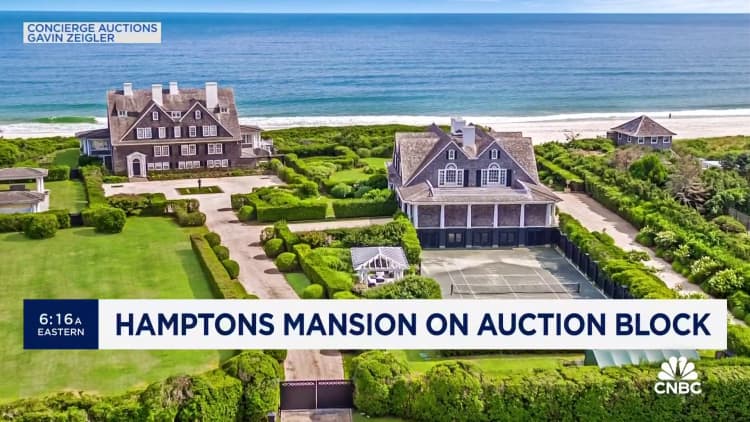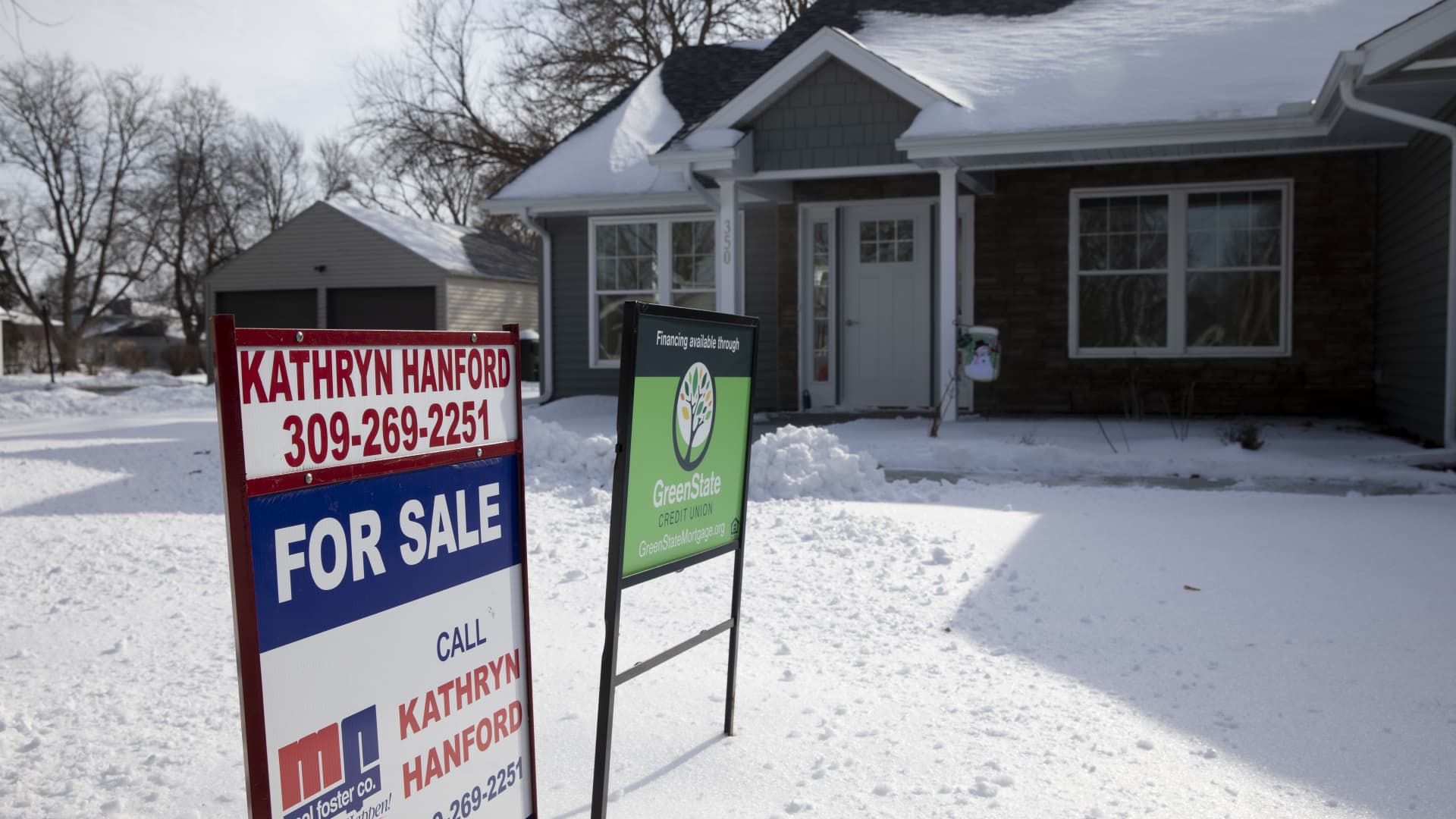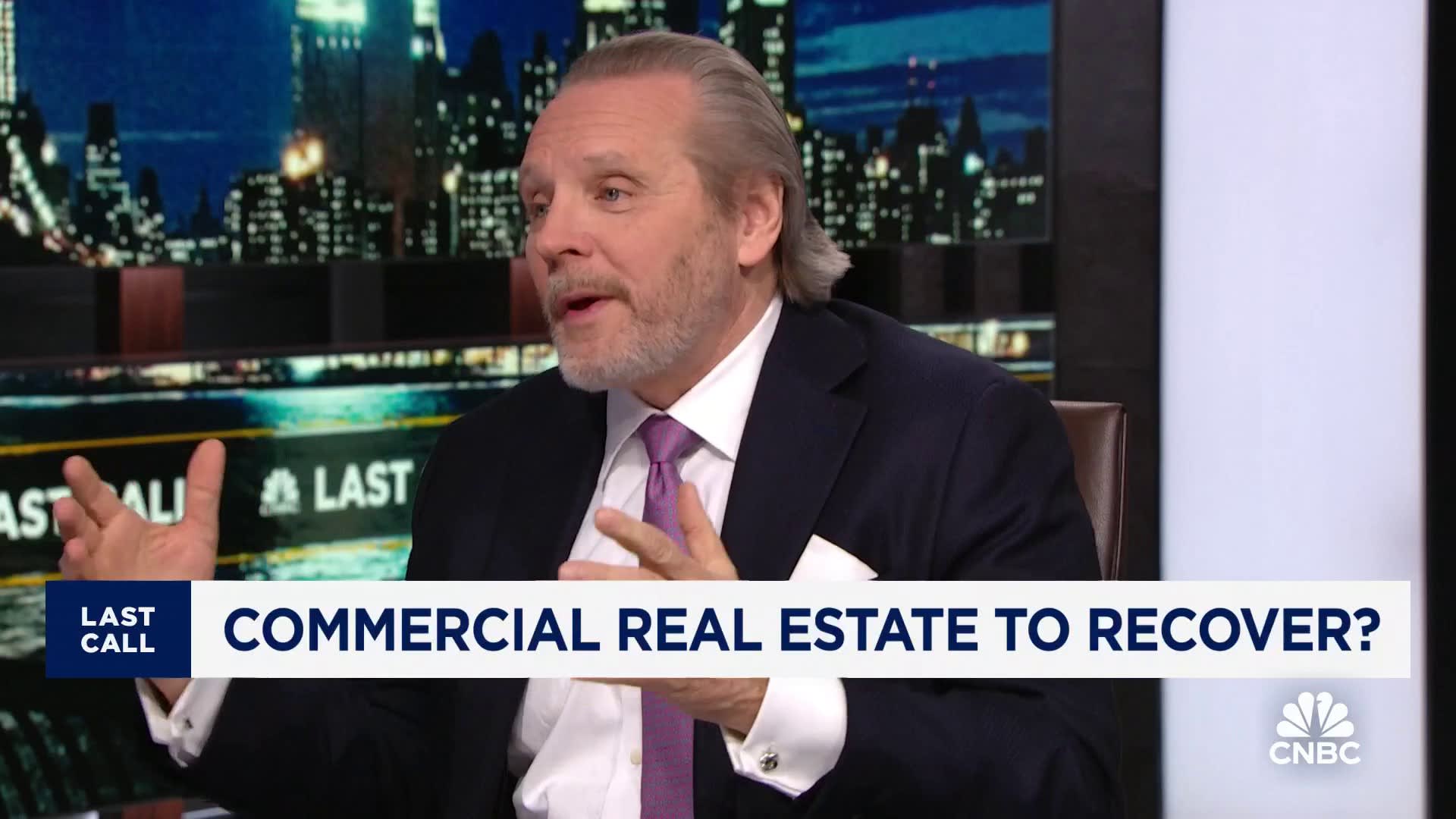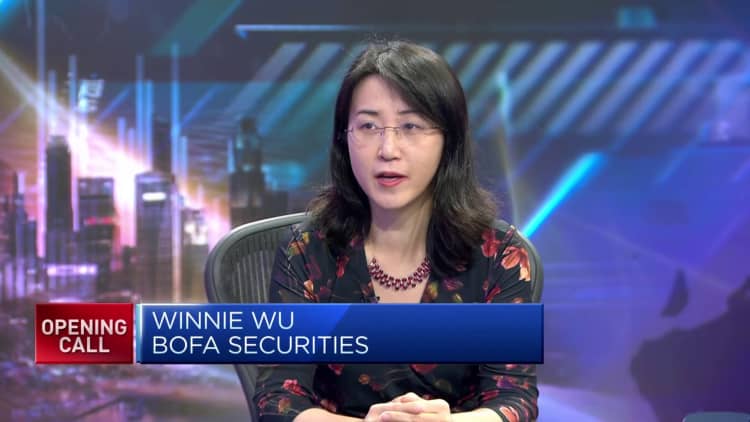David:
This is the BiggerPockets Podcast show, 880. What’s going on, everyone? This is David Greene, your host of the BiggerPockets Real Estate Podcast. Joined today by Dave Meyer. It’s always a good day when Meyer is in town. How are you doing, Dave?
Dave:
I’m doing great. I’m excited for this episode, but I also think we owe our audience a little bit of a disclaimer because our guest today is also named David. So we’re going to have Dave, David, and another David joining us, and we’ll try and use our last names when we’re talking during the podcast, but that’s just a little disclaimer before everyone gets really confused.
David:
Yeah, it does get fun. In the Mighty Ducks, they had a move called the Triple D, and today’s show is a bit of a Triple D with a lot of David going around, but it’s a really good one. So if you’re somebody who’s ever been struggling with getting into the housing market as it’s becoming increasingly competitive, curious about house hacking, want to know what’s going on when you’re getting pre-approved for a mortgage or qualified for mortgage, or are not sure which lender you should be choosing, we get into all of those topics in depth and give a really good breakdown of what the lending industry looks like and how that can apply to real estate investing. Was there anything here, Dave? Oh, by the way, you’ve got a book releasing today, your Start with Strategy book. So let everybody know where they can go get that book, and then as your strategical mind looks through things, let us know what you think people should keep an eye out for in today’s show.
Dave:
Well, first I’ll just talk about the show so then I can talk about the book. Thank you. Appreciate it. But I do think what you were talking about with lending makes a lot of sense and it’s more practical and more important now than ever to really have your financing lined up because the number one thing that is impacting the housing market that is impacting investors is affordability. And it’s really important to understand what kind of deals you can afford, what kind of loan products are going to be best for your particular strategy. So definitely make sure to stay tuned and listen up for those nuggets that are going to be in there in our conversation today.
But I appreciate you bringing that up, David. This episode will come out after the release day, but the day we’re recording is the day my book comes out. It’s called Start with Strategy, and it’s basically a step-by-step guide to help investors of all experience levels develop a business plan or an investing plan that will help you figure out what your specific goals are, what real estate strategies are going to help get you to those goals, and even develop a buy box and action plan to help you achieve your long-term financial dream. So it’s a really good book, I’m really proud of it, and if you want to check it out, you can go to biggerpockets.com/strategybook.
David:
All right, let’s bring in Dave Mackin. David Mackin, welcome to the BiggerPockets Podcast. All right, to start the show, tell me a little bit about you as a lender. How big of a broker do you work for?
David:
We’re actually a pretty small broker, mom-and-pop shop per se here in Colorado. We have about eight employees at this point working on growing and such, but we have about 70 investors that we’re signed up and talking to. So yeah, super awesome being a broker, love doing it.
David:
So are investors your main clientele or do you work with other people?
David:
I guess I should clarify when I say investors, I use that, that’s a term I should be careful with. Different banks and financial entities that we can go to for funding, and that’s what I mean by investors that clients can shop around to see what kind of pricing and programs that they can use.
David:
So then who’s your main clientele? Who are you typically servicing?
David:
Well, I got into it starting off with house hackers, of course, I started house hacking myself and through speaking to my own lender when I started house hacking. I got super intrigued by the financial side of things. What intrigued me the most was that I think a lot of people go into the home buying process thinking, okay, I go to a bank, they tell me how much I can buy and then I go get a loan. What piqued my interest was, wait, there’s so many options, right? It’s not just, okay, tell me what my monthly payment is, how much I need to bring to the table and let’s get it. It was the, wow, there’s so much to consider here on all the options I have. I wanted to learn more about that. Curiosity took me in the direction of falling backwards into the mortgage space.
Dave:
David… And David, can I call you Mackin? Can we just go by last name, guys? This is going to be very confusing if we all call each other David.
David:
Call me Mackin. I’ve been called Mackin my entire life, so you can go ahead and call me Mackin.
Dave:
All right, Mackin.
David:
You can call me Batman.
Dave:
Mackin, what we want to talk about today and are excited to get your take on is what it takes to afford a home and how much a person can afford. So can you just give us some of the basics of this equation? How do lenders think about how much they are willing to lend to an individual?
David:
The high level I’ll start with is that the way that a lot of real estate agents and lenders go about pre-approving in the first place leads into this. A lot of times it’ll say, “Hey, you’re pre-approved up to 500,000 or you’re pre-approved up to 600,000.” The way that I like to think about it is, you’re actually just pre-approved for a monthly payment. Everything about being pre-approved comes down to debt-to-income ratios and therefore comes down to what your monthly payment will be on a particular property. And then when you go even further into it with house hackers, it’s what numbers actually make sense, not necessarily just what you’re approved up to, right? If you’re going to the high end of the ratios, that property might not make sense for the potential for cash flow. So there are so many things that go into it. It’s the principle of your loan, the interest on top of it, the insurance on the property, the mortgage insurance you’re getting for what product you choose, the taxes, all those things are going to go into what you can actually afford and actually get pre-approved for.
Dave:
So for our audience who doesn’t have the full equation and breadth of knowledge to take each one of those things and come up with what house they can afford, where should they start thinking about? Is it income, is it the property? What is the determining factor that people should be considering?
David:
I think it’s a combination of one, their income and finding a basic price point for what makes sense for them. There’s a lot of rule of thumbs you can start with until you actually go work with a lender and the rule of thumb for approval is going to be just around 50% of your debts plus what your housing payment is going to be to your income. And that’s a rule of thumb because it’s a lot more specific than that depending on what program you’re going with right there. If you go FHA, you can go up to 56.99% on the backend, 46.99% on the front end, right? I’m already going too far there. So a good rule of thumb is to think, okay, take 50% of my gross income by the way, and what I’m looking at properties, doing my own calculations on what the monthly payment might be on that house. That’s what I’m going to be approved for. But then as a house hacker, you need to go further and understand, does that monthly payment warrant the potential for cash flow at some point.
David:
You know, David, one of the things that I notice with our brokerage is that people think that the credit score is what’s going to determine how much money they get. There’s an obsession with credit score. Everyone’s like, I have great credit, or I don’t have great credit, or I’m trying to get my credit up another four points and there’s all this effort looked at it. But debt-to-income ratio is a way bigger piece of how much you’re going to be approved for and therefore what neighborhood you can get into. And that has a huge, huge impact and ramifications on the future wealth when you look back 20 years, if you buy into a terrible neighborhood versus a great up and coming neighborhood. And that’s one of the things I covered pretty heavily in my book Pillars of Wealth was debt-to-income ratios are based off of your debt and your income, right? Keeping your debt low and saving money, playing defense is very important.
Dave:
So ratios work.
David:
An income is how much money you make. So you could just simplify everything by saying, how do I go to work every day and become better at my job and to make more money. And how do I remain disciplined and avoid lifestyle creep by keeping my eyes on the prize, which is buying investment properties, which is the third pillar, right? And if you just follow those principles, I find it amazing that everything starts to fall into place. It also, you don’t ever have to worry about your credit score, because if you’re managing your money well, you don’t ever get yourself so into debt that you can’t make your payments. What’s your thoughts on that?
David:
Well, I’m glad that you said that because there’s also a lot of people that get into house hacking look at conventional versus FHA, and if you end up looking at the FHA strategy, FHA allows for credit scores in the mid 600s. If you’re somebody that’s starting at that point, you can look into the FHA option. And by the way, FHA is the option that allows for a higher debt-to-income ratio. So the credit score part of it more determines what option you may end up going with for a particular deal. But like you said, if you are somebody that is in tune with personal finance in the first place, things take care of themselves, like you said with credit score and things like that.
David:
Another common problem that I’ll see is people think that if I go to lender A, they’ll pre-approve me for this much, but if I go to lender B, they might pre-approve me for more. That’s very, very rare because almost all of these loans eventually go to the same investor, like you said, that has hard and fast rules that are put in place because they’re all insured by Fannie Mae and Freddie Mac, where the companies that aren’t doing those loans, they use those guidelines to underwrite. Is that something that you’ve seen as well, that shopping to different lenders, you may get different service, they may have different loan programs, but you’re not necessarily going to say, well that one pre-approved me for a million even though this one only pre-approved me for 500,000.
David:
That’s a rabbit hole. That might be another episode on shopping different lenders and why you might see different pre-approval amounts from the different lenders, but the end result, you’re right, ends up being the same. I think it’s important to shop multiple lenders for the sake of making sure you’re working with someone that will help you plan for the future in your investments and someone that you like talking to and someone that knows what they’re doing as far as helping you with the investment side of things and finding the right lender and shopping lenders to do so is smart in that way, but shopping just for the sake of trying to get a bunch of lenders to nickel-and-dime their way down to approve you for more quote unquote is a waste of time.
Dave:
All right. So we’ve covered some of the basics. We now know that the debt-to-income ratio is the most important thing lenders look at when figuring out how much they’re willing to lend to you. And in that regard it’s actually more important than credit score, but how can you get the best possible rate? David Mackin breaks that down right after this.
David:
And welcome back, everyone. We’re here with lender David Mackin, talking about the ins and outs of lending.
Dave:
When you think about the pre-approval process, like you said, for each individual debt investor, let’s just call them the people who actually provide these mortgages, they have similar underwriting processes, but when it comes to rates, does that change? Because I’ve seen personally pretty different rates when I shop around between providers.
David:
There’s a couple of different factors that go into why different investors are going to give you different rates. For one, as a broker myself and David Greene knows this as having a broker shop himself, you’re going to get different interest rates from all the different investors that you might or banks that you might send the loan to, right? They have different equations and algorithms for what they need to make before they might sell it to another servicer. They have more employees maybe, and they need to make more on the upfront interest to pay those employees to do their work. It all comes down to margins. And by the way too, when you’re working with different brokers, brokers have their own margins for commissions involved in the rate that you’re seeing as well too, and they can defer. So you are going to see different rates and what the cost for rate is when you shop for different lenders, different mortgage brokers as well as them actually going out and shopping to different banks and financial entities that are going to finance your deal.
David:
Yep, that’s a great point. So I think what you’re getting at there, David, you said something earlier I wanted to cover. I think what you were saying is, there are lenders that will tell you, we will pre-approve you for this much to get your business. And then once you’re in contract and they’re actually talking to the underwriters, they’re like, “Actually it’s not going to be that, there it is.” And by that point, you’re already halfway into the escrow, what are you going to do? You’re just going to be pissed, but you close with them. So sometimes finding the person that tells you what you want to hear is not wise. It can be bad, and the same come with rates.
In general, the lower rates are lower because the loan officer is going to be making less money or the brokerage makes less money. And while that, no one’s going to be mad about that, oh, I get a better rate because you make less money. You may find yourself working with a person who doesn’t know what they’re doing. They’re new, they’re inexperienced, they’re going to mess things up, they communicate terribly, that same thing you found.
David:
You have to consider how much is this person worth, right? For investors especially, is this person worth the money because they’re the person that’s going to help me buy multiple properties and build my portfolio and I don’t have to call another lender to do so. I have them on speed dial. And typically you might find a middle ground where someone’s offering really good rates and their service is incredible and what their knowledge is super incredible and great, that’s the person you found and stick with them.
Dave:
I just wanted to ask a clarifying question to you both, because we are talking about rates and the difference between rates and you both talked about something that’s very important that getting a good loan officer is super important, but from my understanding, there’s no reason why a good loan officer should have any higher rates. So it’s cost the same for an investor or a home buyer to work with a good loan officer as a less experienced or less high quality loan officer, right?
David:
It is different between lenders who you’re working with. There is a margin, the amount that a loan officer is making on a loan actually factors into what you are being offered as far as rates. If a loan officer is making more, let’s say for example, you’re looking at, let’s say the same rate across two lenders, you have 7% with one lender, 7% with the other, maybe 7% is costing half a point with one lender and it’s costing zero with another. That means that the lender that it costs half a point is making half a point more on the loan amount than the other lender where it doesn’t cost anything. It’s as simple as that. And so you as a buyer, as a house hacker have to determine is this person worth half a point to work with, because this transaction is going to be smooth, they’re coaching me on my future goals, et cetera, et cetera. And that’s where the difference really comes into play for most situations.
David:
Yeah, that’s a great point. So I’m sure a lot of people here are wondering why would I ever, ever want to pay a half point if I don’t have to, right? My advice there, if you’re a really easy borrower to work with, you have a good job, you have a good debt-to-income ratio, you’re using normal run-of-the-mill loans, you’re going to get approved. It’s not going to be anything tricky. You probably don’t need a rockstar superstar lender. Those are the people that can maybe find the online, click here for a 2.99 rate or whatever and they can roll the dice on that gas station sushi and they got a strong GI track, so they’re probably going to be okay.
But for the people that are listening that are buying investment properties that want to get multiple properties, maybe you’re self-employed, that’s the person that can find themselves in big trouble. If they use the basic loan officer, that’s the cheapest one they could find that does not understand how to read those tax returns, how to argue the case with the lender for why this income should be included or even how to package it together to give it to the underwriter.
I’ll tell you guys what goes on behind the curtains. A lot of the time when you hire the cheapest loan officer you can find, the reason your loan took three extra weeks to close is they did not know how to give the underwriter what they needed and the way they needed it. And every time the underwriter looks at it and says, “I need this thing,” you get bumped back in the queue another week. So would you agree that if somebody has goals of owning more than one property or they’re an entrepreneur, anything that would complicate their file, that’s when they want to get the more skilled professional loan officer?
David:
I couldn’t agree more. In our market, especially two, three years ago when the competition was super high, one of the biggest factors in going under contract was how quickly you could close. If you go and search an article on the internet, at the bottom it says apply now and you end up at some online lender that you don’t even know who you’re talking to, they’re probably not going to be able to guarantee that you’re going to be able to do a 14-day close, sometimes a 10-day close. So in a market like that where there’s a lot of competition for your loan officer, your lender to call the listing agent and say, hey, we can get this done in 10 days, that sometimes is a make or break for being the one that actually goes under contract in a competitive environment.
That means that you are going to be working with somebody that isn’t just a salesperson, isn’t just a intake at a call center. There’s someone that knows what they’re doing on the underwriting side, the processing side, the planning side. They understand all the options that are available to you. There is so much that goes into it and typically that takes more time and knowledge. I can’t remember where this quote is from, but it’s like I heard a story where someone was having a plumbing issue. All these people came in, they couldn’t figure out what was going on.
And then finally they had this guy come in that was a master, been doing it for a long time, comes in, spots it in a second, fixes it in 15 minutes and slaps a $500 bill down on the table. And they’re like, “Wait, what the heck? You did 15 minutes of work. Why are you having me pay $500?” He said, “You’re paying me for the time it took for me to get all this knowledge. You’re not paying me for the 15 minutes of work that I just did there.” And I think the same thing is true in any service industry and especially in real estate.
David:
So on that point, one of the things that we do at our brokerage is, we’re sort of a coach, we are going to coach you through what the best loans would be and how you should pursue if you’re trying to buy more properties, if you just want to buy one property, that’s different than if you’re looking to try to scale. If you’re going to use the BRRRR Method, if you’re looking the house hack, if you’re buying a second home, if you’re getting into short-term rentals, there are different loan programs that work better for those. And sometimes you have to think ahead, once you got four of them, this isn’t going to work, so do we have a plan to switch to something different? For you in the business that you’re running, how is it you’re coaching investors on purchasing properties? Do you talk them through the purchase and make recommendations or are you more of the person who says, you just tell me what you want and I’ll go do what you say?
David:
That’s a great question. The way that I go about coaching, especially house hackers is, here is every single option that you have. We’re going to get on a screen share, we’re going to get in person, whatever, and we’re going to put every option that you have for this next purchase and future purchases on the screen. And together through our conversation, we’re going to break it down into the one that makes the most sense. And the reason we do that is because say, write on paper, FHA makes sense. In our market, we’re a super high purchase price market, right? Cash flow is pretty hard to find in Colorado right now. And the enticing thing that people see is when they’re looking at an FHA loan versus a conventional loan, typically it’s about 10 grand more to go 5% down conventional with closing costs and everything, but the monthly payment is exactly the same as an FHA loan where you’re putting 10 grand less at the closing table, and that’s super enticing.
But then someone has to take into consideration, “Okay, I got this FHA loan. If I’m going to stay in the same market, then I’m not going to be able to use FHA on the next one.” Maybe it makes more sense for them to go, they have more cash in hand now. Maybe they want to go conventional first and then be able to utilize FHA when they turn this property into an investment property and buy the next one as a primary. And so there’s a lot to consider there. And I would say the biggest struggle right now is that difference between FHA and conventional, ever since FHA decreased their factor on their mortgage insurance. It’s a very enticing product now for a lot of people, but there’s a lot to think about with the FHA one.
David:
All right, David has walked us through the debt-to-income ratio and interest rates, but what other variables should investors focus on? Stay tuned for more on that after this quick break.
Dave:
And we’re back. David Greene and I are here with our third David, lender, David Mackin. Okay, so we’ve talked about the main thing about how much house you can afford being your income and the debt-to-income ratio. Obviously rates matter where they are, market rates and what rates that you’re getting offered by your loan officer. Mackin, are there any other variables that people should be considering when thinking through how much they can afford for an investment property?
David:
Definitely the other factor is going to be the insurance that you might get on the property and then the taxes on the property. Those are all going to be considered as part of the debt-to-income because that’s going to be a part of your monthly payment, right? And it actually goes even further. Right now in our state, we had a reassessment period this year for taxes rather last year. It’s early January, I keep doing that. And taxes went up 40, 50% for a lot of people, which is insane. And so they might be able to afford the house that they’re in right now, but when they get hit with that new tax bill and escrow reaches out for them to start increasing their contribution to their escrows, all of a sudden they might be in hot water.
And the same goes for anybody closing on a property before that new tax bill takes effect because we pay taxes in the arrears. They may be buying a property right now and the numbers make sense right now, and then very quickly that tax is going to go up and all of a sudden it changes their numbers completely.
So much like we were talking about working with a good loan officer, working with someone that foresees that and says, here’s what your taxes are probably going to look like in the future, make sure the numbers make sense for those taxes right there. And then the insurance too. I’ll speak on that real quick. You can choose different deductible amounts, things like that. You could have a very low deductible, but your monthly contribution to your escrows for that insurance policy are going to be higher and may affect your affordability. So some people really just want to get into a house and may opt for a higher deductible on their insurance so that their monthly contribution is lower because that might be the make or break for them even getting into the house. So there’s a lot to consider outside of just interest rate and what your principal balance on the loan is.
Dave:
That’s great advice, David. I think it’s something that doesn’t get talked about a lot, especially for newbies. You just look at the price of the house, you look at interest rates, but there are these other costs, and particularly right now as you mentioned with insurance and taxes going up so much that will impact your affordability, I kind of think about states like Texas. I actually thought about investing there because there’s a lot of good fundamentals going on in those markets. But Texas has no state income tax, but their property taxes are super high and it can actually really impact your debt-to-income ratio, it could impact your cash flow. And so that’s something everyone should be thinking about when they’re analyzing deals or approaching a loan officer to talk about what they can afford.
David:
Couldn’t agree more. And, Dave, if you’re someone that’s investing from out of state and you’re not in Texas, cool, there’s no income tax, but that doesn’t really change anything for you as an investor. Higher property taxes absolutely changes.
David:
It actually works against you if you don’t live in Texas, but you invest there because you’re still paying the state income taxes like me in California that are high and I’m paying higher property taxes when you go to Texas, right? So it is wise to be looking at different advantages and on that topic, how you look at your investing will make a big difference on the choices that you make. So there are some people who think buying cheaper properties is inherently better, so buying a house for 500 instead of 550 is wise just because it’s cheaper. But if you’re a house hacker or if you’re an investor, I don’t think that the actual price of the house is what you should be looking at. What you want to be looking at is how much income does it bring in versus how much does it cost.
We’re back to that whole offense defense debt income. So for instance, if you borrow another $50,000 to buy a property at a 7% interest rate, so the house you were going to buy one for 500 instead, you buy one for 550, your principal and interest on that extra 50 grand is about $333. But what if that house that has for $50,000 more has an extra bedroom that you can rent out for $700, right? In that scenario, the more expensive house is the smarter financial option, especially if it’s in a better neighborhood and the price of all your bedrooms, they’re all going to be raising. And so now not only are you getting an extra bedroom, but when rents rise, you have the rents rising on an extra bedroom every single time. What’s your thoughts on when you’re working with house hackers kind of creating that framework for them to be looking at this purchase through?
David:
I think it’s working backwards, right? When you’re looking at a particular property or you’re looking at multiple properties, do a really good analysis on what you think you can make for rent and the strategy that you’re going to use for making rents and work backwards with it. Okay, I go to this property, maybe it’s a five bedroom home, which you can find and I can rent out four of the bedrooms. And some houses in Colorado, you can rent out these rooms for a 1000 bucks, right? Okay, cool. I’m making four grand on this property and in order for me to be cash flowing, then I need to go and make sure that the mortgage on this property is going to be less than and therefore cash flow.
I mean, that’s the simple equation of doing cash flow. I just think that it just needs to be worked backwards, and that’s going to help you not waste your time going and seeing too many properties because you’re analyzing the rents on it first as a house hacker, right? Your typical home buyer’s going to go, “Okay, I want 30% of my income to be my housing expense.” Cool. Simple, right? It’s a little bit more complicated for a house hacker, but not too complicated. Start with the rents, work backwards, see what the payment’s going to be.
David:
What’s your experience been like with the type of people that are crossing your desk that are looking for real estate? Are you seeing more primary home buyers? Are you seeing more house hackers? I’m wondering because with rates going up, cash flow is getting a lot harder to find, so I’m wondering if you’re seeing less investors and more creative approaches.
David:
I’m seeing in my market is that house hacking is no longer investment only strategy. I actually think that for the new wave of home buyers, that house hacking is simply just the way to buy a home right now, especially in higher price markets. The word is out, everybody. House hacking isn’t just this secret sauce or anything like that. I’m not sure people are necessarily knowing the term house hack, but they’re going in and considering, “Okay, I’m someone that is young. I already have roommates that I live with at a rental property, I rent myself. What if I can ask them to come and move with me into a house that I buy, rent out the other rooms and I’m not paying nearly as much as I am right now in rent.” You may still be paying something out of pocket, but I’m seeing more people that are your normal home buyers doing the house hacking method to simply just have a lower housing payment. That’s it.
Dave:
One thing I want to call out about house hacking though, is that I think sellers are catching onto this. I don’t know if you guys have noticed this, but I’m seeing that sellers are pricing duplexes outside the realm of reason for a non-owner occupant. And so if you look at a duplex and the cash flow that it can generate or the rent to price ratio, they’re getting a little bit outsized, at least in the markets that I’ve been looking at over the last couple of months. And I noticed that on the listings, all the listing agents specifically pitch them as house hacks because as you guys said, the numbers work for house hackers, but they don’t work for investors. And so that’s good for a house hacker, but it also means you might be paying up a little bit.
David:
Something interesting happened with multifamily homes recently, and that was when Fannie Mae came out and said, “You can put 5% down on multifamily.” That announcement alone increased the value of multifamily homes, in my opinion. I mean, all you did was increase demand, right? You brought more people interested in multifamilies because of that, right? And so I agree that there’s a bit of a… I don’t want to say bubble button overpricing on the duplexes, the triplexes, the quadplexes, but if you go buy a 2-1, 2-1, you can find single family homes that are four bed, two bath, and you can rent out all the rooms and you’ll probably cash flow more on just buying that single family home and not have to pay a premium because it’s simply a duplex.
A lot of people that I work with that start to analyze the multifamily start to realize really quickly that potential for increasing cash flow is not as likely as they thought it was, right? And it depends on the property, but I do not blame the listing agents and the sellers on those multifamilies for marketing it that way and trying to get a higher price point. Of course, they’re going to do that. That’s what their job is to do. And people will go buy it with that strategy in mind. But don’t underestimate the single family home when there’s a shiny element to a duplex or a triplex, right?
David:
Yeah. I remember as a kid that people who own duplexes, there was sort of some pity for them. Like, oh, you’re poor, how sad. Too bad you can’t buy a real house, and you had to buy one of those pretend houses. It was like you didn’t have a motorcycle, you had a Vespa. It looks kind of like one, but we all know that that’s not anything that anybody wants, right? The duplexes were the Vespas of the housing industry and now they’re the Ducati. Everyone’s fighting to get those duplexes. And I think that it’s worth noting the reason that small multifamily is so popular is because housing’s so damn expensive. When you really don’t want to pay that full four grand a month and you can get a duplex or a triplex and take a big edge off of it, it makes a lot of sense. It’s going to put them in demand that they’re going to sell for more.
But the reason that housing is so expensive is we don’t have enough supply. Things can change if they figure out a way to incentivize home builders or technology improves to where 3D printing of houses becomes a thing that can happen all the time and boom, boom, boom, boom, boom, housing just starts to go up all over the place. Those people that really wanted that duplex are going to find it’s very difficult to sell, because someone’s going to say, “Why would I pay all that money for a tiny little duplex that’s 90 years old, when I could go buy the big brand new shiny house that just was 3D printed for half as much money?” And as investors, we always have to be aware that the trends change and what is popular now may not be popular in the future, and what nobody wants right now might be something that people wants in the future. But what doesn’t change is financial responsibility. Making more money was always going to be a result of increasing your value to the marketplace, and that’s going to encourage personal growth, and I’m here for it.
David:
That’s certainly a perspective thing too, of understanding where you’re at and enjoying it as well. Not everything is about what money can buy you, it is about freedom. It is about independence. And money goes, when all is said and done, you die. But the independence that it can give you while you’re still here is where the value actually is. So I couldn’t agree more with that.
David:
Dave Mackin, anything that you’d like to say before we get you out of here?
David:
One thing I will say is that anybody that may not be buying a property right away, or they’re really in the analysis period or they’re just interested in real estate, if you have any inclination to get into real estate as a career, that is something that is super powerful for me. You can buy deals and you can have as many deals as you can, and you’ll learn from all of those. But the opportunity to work with a lot of investors and go help them and be a part of their transactions, the knowledge that you gain from it is exponential, as compared to just doing your own. And so anybody that has any interest in it, I would highly encourage getting into it. Making sure that you can still qualify for homes when you get into it is another conversation, that is the danger of it. So I will asterisk with that. But if you’re someone that has that time, two years to get into it and get going, I would recommend it.
David:
But a good loan officer will help you find a way to make income and find loans that you can use, whatever income you make to qualify as opposed to a mid-one. So don’t go mid. You heard us mention on the show, my book, Pillars of Wealth: How to Make, Save and Invest Your Way to Financial Freedom, and Dave has a book out as well, Start With Strategy. You can find both of our books at biggerpockets.com/storemine. Woo woo.
Dave:
Woo woo. Yeah. Today is the day.
David:
Right on. If you want to learn how to make and save enough money to buy a house, and then once you’ve got it, you’re like, “Well, what should I do with this money? I need a strategy.” Those are two books that you should go pick up. I’ll let you guys get out of here. This is David Greene for Dave, my Stratego Amigo, Meyer, signing off.
Help us reach new listeners on iTunes by leaving us a rating and review! It takes just 30 seconds and instructions can be found here. Thanks! We really appreciate it!


















